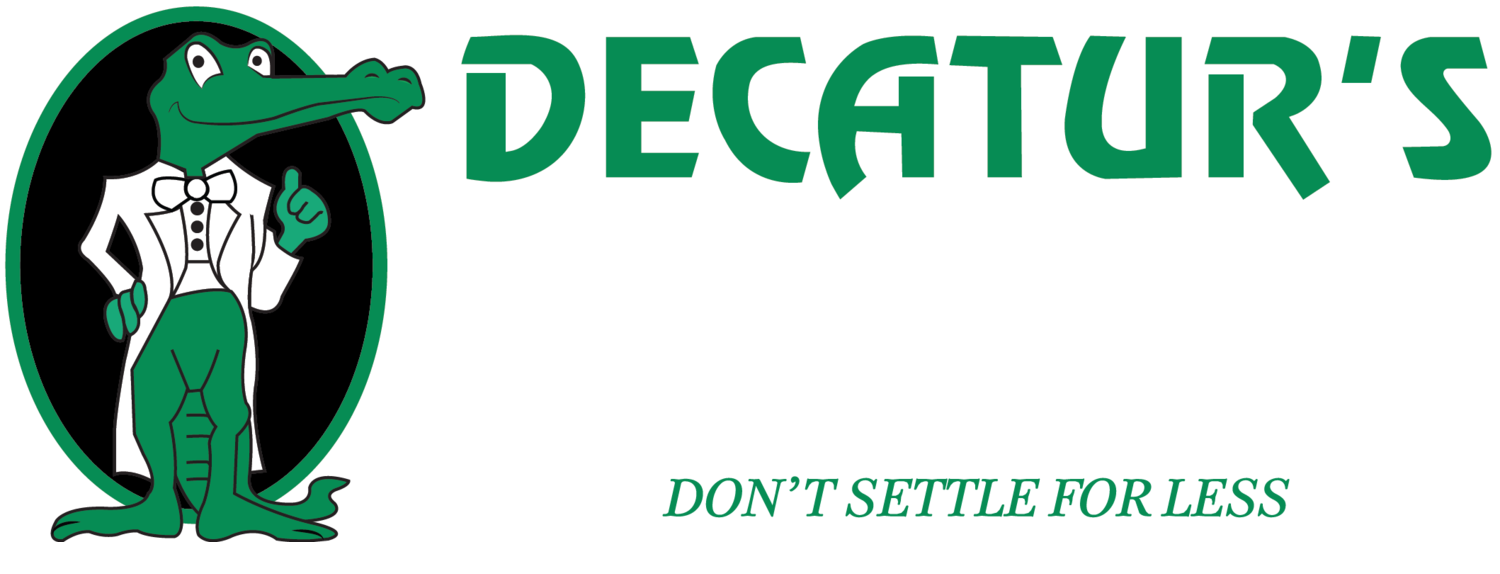TIPS FROM DECATUR'S AUTOMOTIVE
AUTOMOTIVE TIPS
Antilock Brakes on slippery pavement.
Antilock brakes do not necessarily shorten your stopping distance on slippery pavement. The primary purpose of antilock brake systems (ABS) is to prevent uncontrollable skids and permit continued steering of the vehicle even during hard braking. It may take a greater distance to stop, just remember to steer and you'll have a much better chance of controlling your vehicle on slippery pavement.
Antifreeze needs to be changed every few years even if it doesn't lose its freeze protection.
Over 2-3 years the antifreeze in your vehicle is depleted of various additives. These essential lubricants and corrosion inhibitors are vital to the proper operation and long life of your radiator and cooling system. Because of the continued use, the system should be flushed every two years or 24,000 miles.
Replacing your battery? How many CCA's do you need?
The absolute minimum would be the number of Cold Cranking Amps (CCA's) that came with the car's original battery. But for maximum cranking power in cold climates, most technicians recommend getting the highest CCA rating available for your vehicle, providing that it doesn't exceed the manufacturer's specifications.
Windshield fogging in cold or damp weather.
Does your windshield fog up in cold or damp weather even with the defroster on? Is there little air coming out of your defroster? If you answer yes to these two questions, you may have a clogged cabin air filter, a clogged evaporator core or a stuck blend door. If you smell antifreeze, the fogging could be caused by a leaking heater core. Sometimes it is a simple as thoroughly cleaning the inside of the windshield that helps prevent fogging in cold or wet weather. Cleaning the inside glass removes the tiny particles that water droplets are prone to cling to. If this doesn't cure your problem, then its time to see the professionals at Decatur's Automotive.
